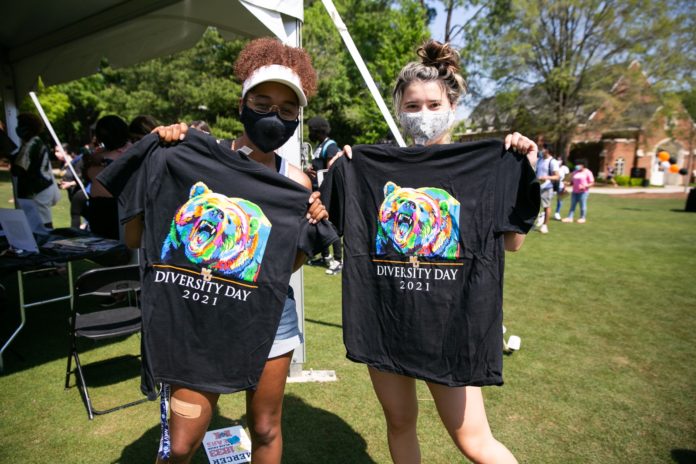
Over the past year, many people experienced mental health difficulties due to the pandemic, quarantining and social injustice. This uptick in mental health struggles and crises was reflected in the number of services offered to our student body by Counseling and Psychological Services.
During the 2020-21 school year, 265 Mercer University students received counseling in Atlanta, an increase of 30% over the previous year. In Macon, 477 students sought counseling services.
Research suggests that one-half of all chronic mental illness begins by the age of 14, and three-quarters of all chronic mental illness begins by the age of 24. Furthermore, suicide is the second leading cause of death among college students and the third leading cause of death among all youth 15-24 years old. In the U.S., only accidents and homicides claim more young lives.
More than 4,000 young people ages 15-24 die by suicide each year in the United States, according to the American Foundation for Suicide Prevention. To address suicide prevention and awareness on Mercer’s campus, the University held its first Out of the Darkness campus walk. This walk was student-led and organized with CAPS support and guidance, raising $12,445.
In addition, CAPS and the Office of Diversity and Inclusion Initiatives held nine programs aimed at addressing one cause of mental health difficulties — social unrest throughout the U.S. On June 3, 2020, our first Let’s Start the Conversation Series garnered more than 230 attendees. A number of faculty, staff and students are still dealing with emotional, psychological and physiological impact of social unrest, including anxiety, depression, hope, fear, frustration, grief and loss.
Research has linked the increase in mental health crises to a plethora of triggering events including racial trauma, or race-based traumatic stress. Race-based traumatic stress refers to the mental and emotional injury caused by encounters with racial bias and ethnic discrimination, racism and hate crimes.
The most common race-based traumatic stress events on college campuses come in the form of microaggressions, microinvalidations, macroaggressions, microinsults, race-based discrimination, harassment or violence. Research suggests that prolonged exposure to race-based discrimination, harassment or violence can lead to severe psychological damage on individuals and the wider community.
To combat microaggressions at Mercer, students in Lisa M. Newman’s TCO 250: Communication in Management course in the School of Engineering collaborated with the Office of Diversity and Inclusion to complete a project to educate faculty, staff and students on the impact of microaggressions. The project included public service announcements, posters and a social media blitz.
Racialized trauma can be experienced through direct or indirect experiences. A number of Mercerians have experienced the indirect impact of individual and community racism, sexism, discrimination, harassment and violence.
Indirect experiences include nationally televised events depicting the increase in mass shootings, race-based violence, and police brutality such as the killing of George Floyd. May 25 marked the one-year anniversary of Floyd’s death, which shocked the nation and the Mercer community and spearheaded the Let’s Start the Conversation Series and Equal Justice March and Vigil.
Recent events have been specifically targeted at Asian, Latinx, Indigenous people, and Black or African American individuals and communities. Oftentimes individuals in these communities have very little access to mental health services, and issues go unaddressed or untreated. As a result, people of color are less likely to receive a diagnosis for behavioral health issues and have less access to mental health services.
To increase access to mental health services in Macon for people of color, Mercer alumna Andrea Cooke has been hosting a mental health pop-up gym including a free therapy session. The goal of this project was to destigmatize mental health issues and bring access to those in need. The next event is June 5 at Booker T. Washington/Linear Park.
In addition, as a result of the latest Israel-Palestine conflict — which has recorded more than 230 deaths of Palestinians, many of whom are children, and 12 Israeli deaths — people are facing antisemitism and Islamophobia. On campus, we have two student organizations that support Israel and advocate for justice for Palestine — Students Supporting Israel and Mercer Students for Justice in Palestine, respectively.
As a campus committed to equity and inclusiveness, our university will continue to address issues pertaining to race, ethnicity and national origin, and we remain committed to providing an inclusive and supportive campus in today’s climate.









